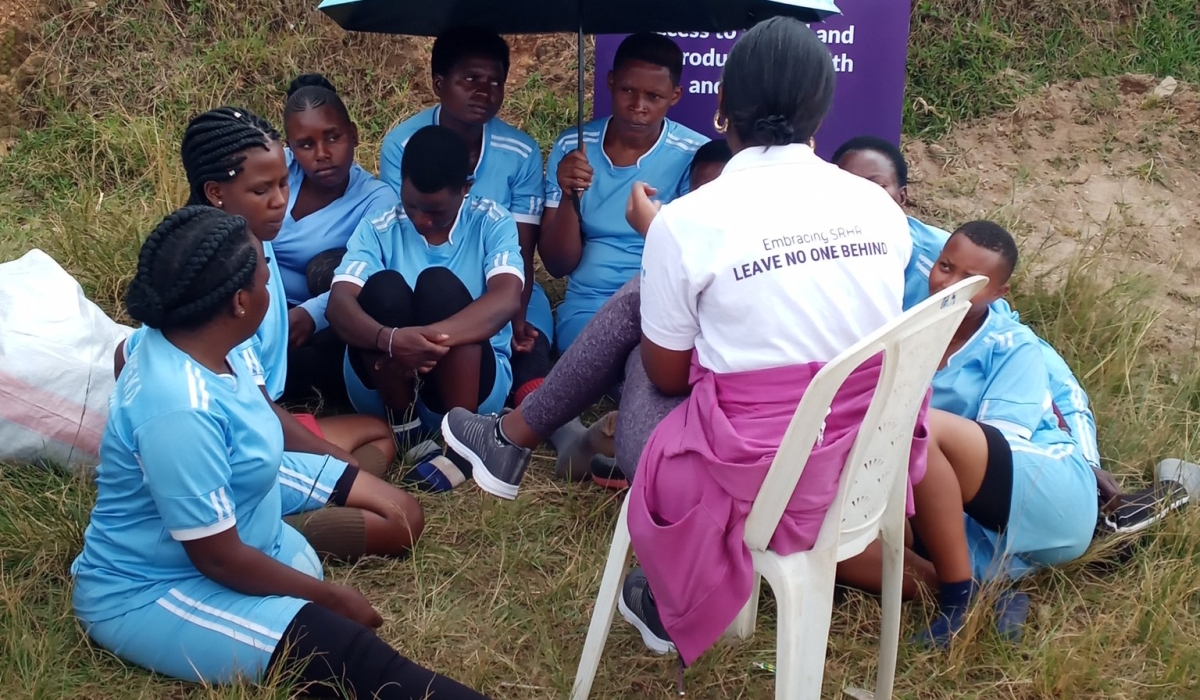The National Union of Disability Organizations in Rwanda (NUDOR) has endorsed a new bill that would allow teenagers aged 15 and older to access reproductive health services, including contraception.
Louise Manirakiza, a healthcare professional and communication officer for NUDOR, said the bill is particularly important given the heightened vulnerability of girls with disabilities to sexual violence, including defilement and rape.
The bill, introduced to parliament on November 5, aims to regulate healthcare services and make reproductive health resources available to adolescents aged 15 and above. It comes in response to rising rates of teenage pregnancies in Rwanda, an issue highlighted by Minister of Health Dr. Sabin Nsanzimana when presenting the bill to lawmakers.
The explanatory note for the bill argues that current laws discriminate against adolescents by denying them the right to make decisions about their reproductive health. Under the existing legal framework, the age of majority in Rwanda is 18, which restricts access to reproductive services for those under that age.
“Sexual and reproductive healthcare services should be affordable and accessible for girls with disabilities. We need quality services,” Manirakiza said. “Girls under 18 should be allowed access to contraception as it is their right.”
She also noted that while recent changes in the law allow 18-year-old girls to marry, contraception should be accessible to girls under 18, especially given the growing number of teenage pregnancies.
Manirakiza emphasized that reproductive health services should be inclusive, with a focus on meeting the needs of individuals with disabilities. She pointed out the challenges that adolescents with disabilities face in accessing care, including a lack of trained healthcare staff to assist those with hearing or speech impairments. Additionally, long distances to health centers remain a significant barrier.
“Girls with disabilities are more vulnerable to defilement and rape than others,” Manirakiza said. “Youth centers and services should cater to the needs of adolescents with disabilities.”
The Rwandan government has made progress in improving sexual and reproductive health (SRH) services for adolescents and youth, including the establishment of youth-friendly health services at local health centers. However, challenges remain, including early sexual activity, teenage pregnancies, unsafe abortions, and low contraceptive use.
Adolescents, particularly those with disabilities, also face social stigma and cultural barriers that limit their access to sexual and reproductive health education and services.
Manirakiza called for community health workers to be better trained to meet the specific needs of adolescents, noting that many currently only offer basic services, such as condoms.
“Community health workers should offer comprehensive sexual and reproductive health services, not just condoms,” she said. “Safe spaces are critical for enhancing access to these services.”
Safe spaces—programs designed to support vulnerable adolescent girls and young women—can help create an environment of trust and confidence, leading to better sexual and reproductive health outcomes.
“Safe spaces build confidence among adolescents to address sexual and reproductive health concerns,” Manirakiza explained.
Globally, access to adolescent sexual and reproductive health services for young people with disabilities remains limited. Adolescents, particularly girls and those with disabilities, are especially vulnerable to sexual abuse, unintended pregnancies, and gender-based violence.
Manirakiza called for greater investment in both government and non-government initiatives to address these issues. She also highlighted the success of Rwanda’s Make Way program, which creates safe spaces for vulnerable youth, including those with disabilities, teenage mothers, young people in isolated areas, sex workers, and people living with HIV.
She recommended that this model be expanded and replicated throughout the country to better support adolescents, particularly those with disabilities.

